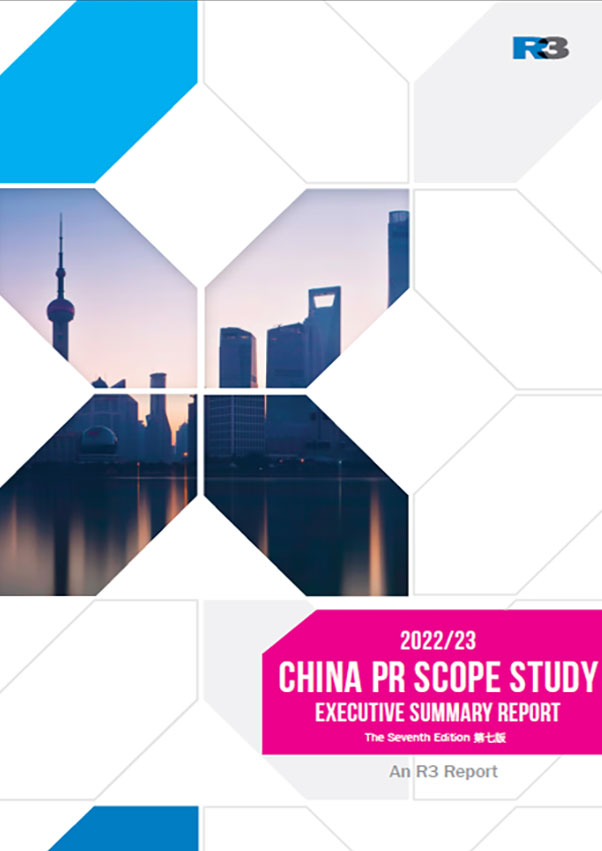Public relations teams in China are experiencing greater synergies with internal marketing departments as a result of increased public opinion and social discourse on a range of domestic and international issues. According to global independent marketing consultancy R3’s seventh China PR Scope Study, 43% of marketing and PR teams across 109 brands in China reported some degree of integration in the last year.
Increased consumer scrutiny of marketing content and product endorsements, parallel with government efforts to educate citizens on issues like ESG and data privacy, has made PR an important part of marketing in China. The power of social media to build and tear down brand reputations at speed has also added importance to PR as a key marketing function.
“Developing in-house PR capability has impacted the type of partnerships that brands have with external PR agencies,” said Sabrina Li, Managing Director of R3 China.
“Scopes of work will change for agencies, and they will need to work harder at being clear about their areas of expertise. PR agencies in China need to promote their unique service offering, show they can support in-house teams, and prove their value through performance-based metrics. This can only be good for the industry.”
R3’s China PR Scope Study is available as a full report to participating marketers and agencies, with an executive summary available upon request. The report includes survey data on PR agency performance in China, trends in PR agency selection and remuneration, and the evolution of services and capabilities.
R3 China PR Agency Scope Study: 5 Insights
1. The internal resources and structure of marketers have undergone different degrees of integration
Due to digitalization and the escalating demand for PR marketing and corporate PR, internal team structures and resource ratios of marketers have changed in China. Almost 30% of PR and marketing teams have merged, with 11% experiencing integration at a group level.
2. Flexibility and agility to respond to change is an important issue for all companies
Instances of force majeure and unplanned changes as the result of pandemic-related restrictions have forced China’s marketers to prioritize enterprise risk management. In 2022, 46% of planned marketing campaigns had to stop and shift to online platforms (vs. 29% in 2021), with more focus given to precision marketing (+5%).
3. Corporate social responsibility requires PR agencies to demonstrate stronger high-level strategic thinking and planning skills
CSR/ESG related PR campaigns have become important avenues for shaping brand image. Multi-national lead communication and promotion activities in this area. Only 10% of marketers say they are not currently launching CSR/ESG related events in China, with 6% saying they are not currently, but will be in the future.
4. PR agencies can differentiate and enhance competitiveness by highlighting service capabilities, innovation, and resources
More than 18% of marketers surveyed want to see their PR agencies be more responsive to business and market opportunities and challenges. 17% want to see innovative thinking in the form of timely solutions to hot topics, and agility in response to industry trends.
5. PR agencies have the highest customer satisfaction scores compared to other agency types
The relationship between marketers and their PR agencies are the most stable compared to Creative, Media, Digital and BTL agencies in China. 78% of marketers are not planning to change their PR agencies in the near future.

